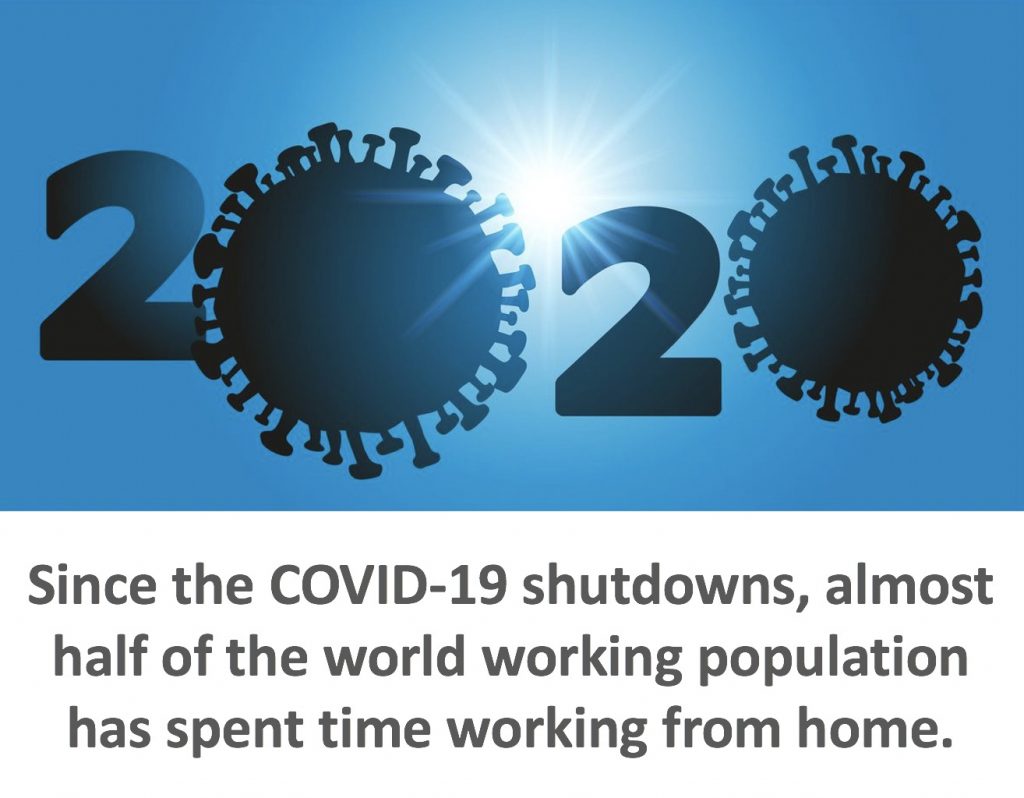Work-From-Home is here to stay (WFH); and more…
The work-from-home economy is probably here to stay. Deutsche Bank and Paypal became the latest big employers planning for a hybrid work model.
Since the COVID-19 shutdowns, almost half of the world working population has spent time working from home.

Experts believe at least a significant minority of these newly-at-home workers will stay there in the longer term.
If you wind the clock back to November 2008, when the Global Financial Crisis was raging, only about one in every hundred employees, excluding business managers, worked mainly from home according to the Australian Bureau of Statistics (ABS).
By 2019, before COVID-19 was detected, about a third of the working population was regularly working from home.
As April turned to May this year, after first coronavirus wave peaked, nearly half of the workforce — 46 per cent — was mainly working from home.
Michelle Marquardt, program manager for the ABS household survey, said that although many workers will return to their former workplaces, some will not.
Major financial services and consultancy firm Deloitte said an unexpected benefit of the working-from-home arrangement was “finding out that in our profession, and with our investment in technology and people policies, we have been able to work from home effectively at very short notice for extended periods of time”.
A Deloitte spokesperson said the company was committed to its physical office space, but noted that a new “skillset” had emerged in a “physical-digital hybrid environment”.
“The physical workplace will remain important for encouraging activities that bring our people, partners and clients together,” the spokesperson said.
“These distinctly human activities will be supported and augmented by the use of digital technologies.”
However, despite the significant changes to working arrangements, offices in downtown areas are likely to remain a really important part of the economy.
Other News from the Weekend
Investors have been slow to warm to U.S. commercial real estate, but in Singapore and Hong Kong, where people have smaller homes and shorter commutes, office buildings are faring better. The work-from-home trend has been a surprise boon for women in India’s huge back-office sector, but in the U.S., dry cleaners are getting crushed.
With the first potential Covid-19 vaccine landing as soon as next month, large U.S. hospital systems must decide which health-care workers should get shots first. AstraZeneca’s contender will likely not be one of the options, as it may need to be retested in another clinical trial. In China, people are chasing unproven products on the black market.
As President-elect Joe Biden’s cabinet takes shape, President Donald Trump gave the strongest indication yet that he’ll voluntarily relinquish power come January. But that hasn’t stopped him from pursuing his losing effort to have courts void Biden’s victory.
The pandemic has turbocharged already accelerating income inequality, with the rich getting even richer. But the denizens of the wealthiest zip codes in America are having trouble selling their mansions.
The frenzied rally in electric vehicle stocks came to an abrupt halt, while crypto diehards say the latest Bitcoin selloff was just a blip.
How to Earn Passive Income with an Automated Trading Robot?
If you don’t have the time to study the news or learn to read charts, the best option to earn passive income with currencies is to use an automated trading bot.
Our proprietary robot was built from scratch to provide a scalable and reliable solution which allows any number of accounts to instantly and automatically execute trades simultaneously.
After your Robot is active you can monitor everything from your computer or smartphone.
Go to https://brozbot.com, try it for FREE and share your experience with our community at www.facebook.com/groups/brozbot
